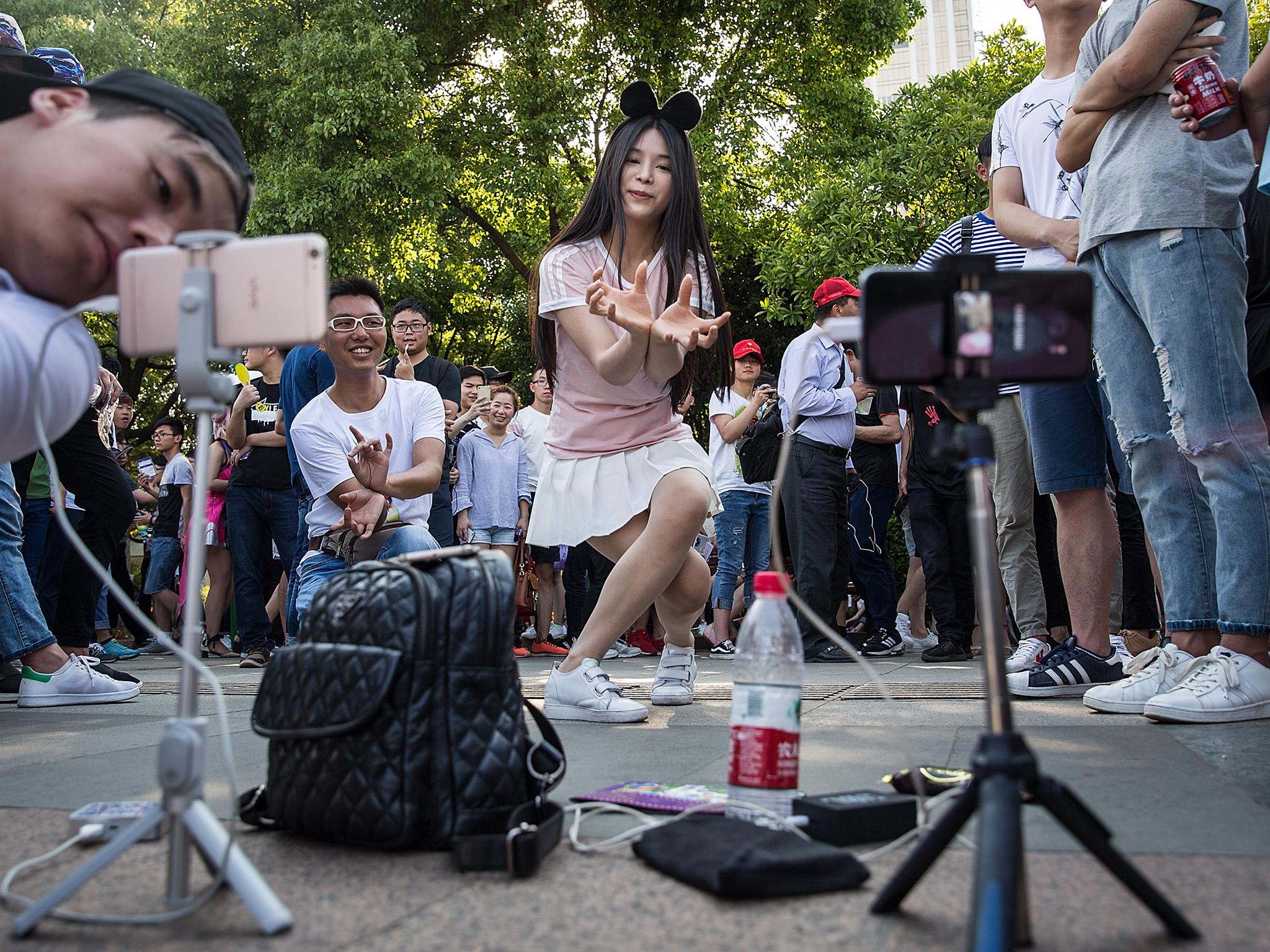China bans live-stream hosts from wearing ‘sexy underwear or see-through clothes’
Presenters ‘cannot wear sexy uniforms, flesh-coloured tights, etc’

Your support helps us to tell the story
From reproductive rights to climate change to Big Tech, The Independent is on the ground when the story is developing. Whether it's investigating the financials of Elon Musk's pro-Trump PAC or producing our latest documentary, 'The A Word', which shines a light on the American women fighting for reproductive rights, we know how important it is to parse out the facts from the messaging.
At such a critical moment in US history, we need reporters on the ground. Your donation allows us to keep sending journalists to speak to both sides of the story.
The Independent is trusted by Americans across the entire political spectrum. And unlike many other quality news outlets, we choose not to lock Americans out of our reporting and analysis with paywalls. We believe quality journalism should be available to everyone, paid for by those who can afford it.
Your support makes all the difference.China is moving to ban the use of “sexy uniforms” and see-through clothing by presenters in its booming online live streaming industry.
Authorities in the central province of Hubei set out the new regulations, the first of their kind in China, and suggested they set a standard for the rest of the country to follow.
The rules stipulate that woman webcast presenters “cannot wear sexy uniforms, sexy underwear, see-through clothes, flesh-coloured tights, etc”, according to the state news agency Xinhua.
Children appearing on such platforms must be accompanied by a responsible adult or obtain written permission from a guardian.
And platforms must do more to provide easy-to-use 24-hour complaints channels where users can report “illegal accounts” or activity, the rules stated. Where such complaints were received, the platform must be in a position to shut down the live stream within 90 seconds.
Chinese web users have shown a huge appetite for live streaming in recent years, where the “anchor”, often a young woman, talks about their daily life and interacts with viewers.
Deloitte estimated that the industry was worth £3.3bn in China last year, up 32 per cent from 2017, and the number of platforms and star performers has proliferated.
Much of the revenue comes from ecommerce, with celebrity presenters being paid to use and review new products and recommend them to their followers.
With more than 100 million viewers every month, it was inevitable authorities would move to regulate and censor content in the same way that traditional media is tightly controlled.
Xinhua said the Hubei state authorities had worked with Wuhan University, as well as online industry associations, for six months to come up with its “web live platform management specifications”.
Yang Jiandong, head of the Hubei Provincial Market Supervision Administration, said its implementation would “push the webcasting industry into a benign development track”.
Join our commenting forum
Join thought-provoking conversations, follow other Independent readers and see their replies
0Comments